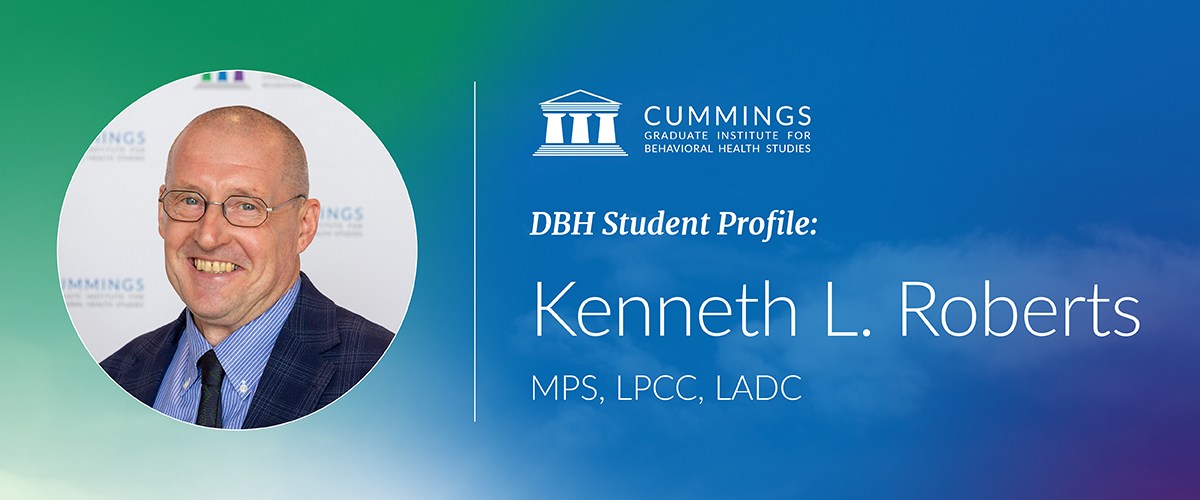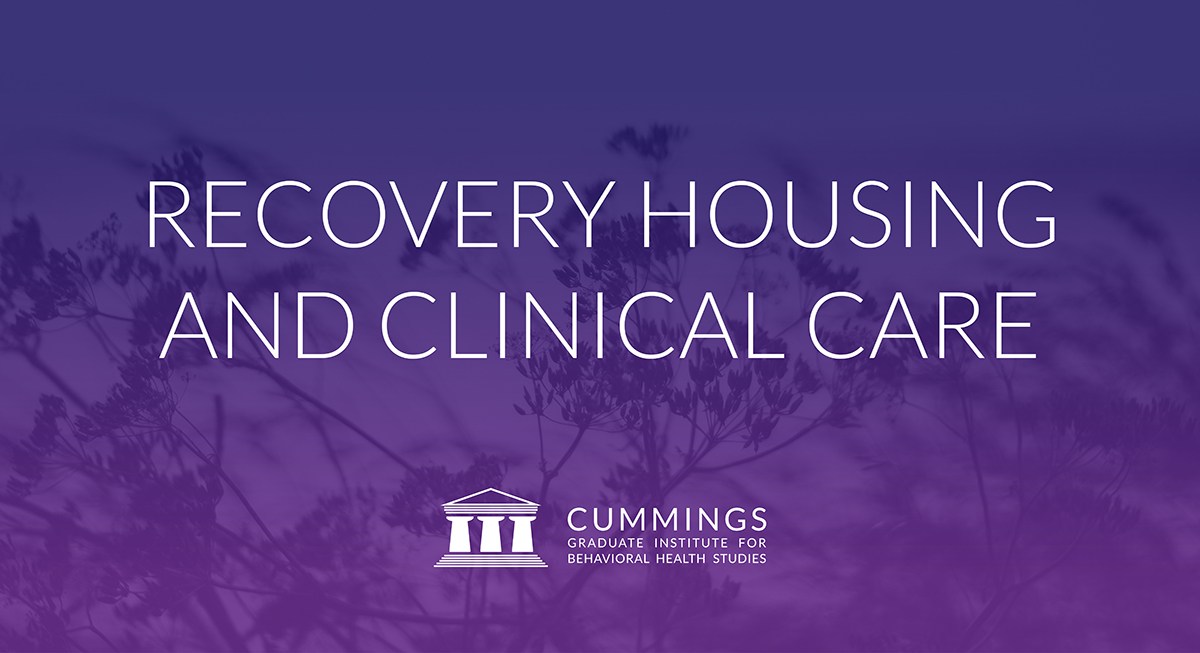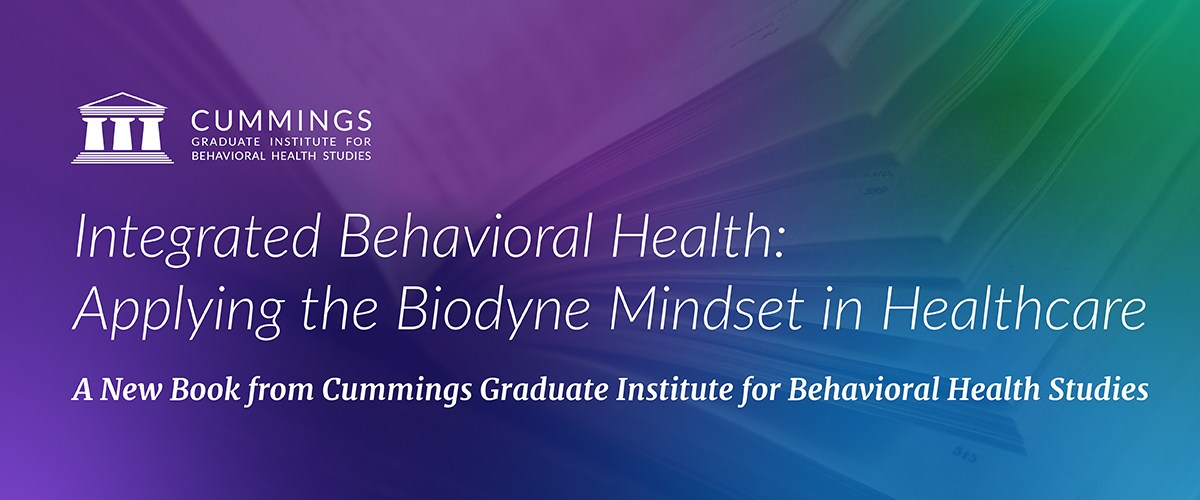 Leading with Purpose: Kenneth L. Roberts’ Vision for Integrated Care and Systemic Change
Leading with Purpose: Kenneth L. Roberts’ Vision for Integrated Care and Systemic Change
November 5, 2024
Kenneth L. Roberts serves as the Chief Clinical Officer at NUWAY, a nonprofit program in Minneapolis, MN, with over 15 years of experience as a clinician, clinical supervisor, and administrator in co-occurring care for substance use and mental health disorders. In addition to pursuing his Doctor of Behavioral Health degree at Cummings Graduate Institute, he is certified in Prolonged Exposure (PE) and Accelerated Resolution Therapy (ART) for PTSD treatment. He holds a master’s degree in Professional Studies (Co-Occurring Disorders) from the University of Minnesota, where he teaches as an adjunct faculty member, as well as at Metropolitan State University. Kenneth works in his current role synthesizing a R.I.S.E. (Recovery In Supportive Environments) Model of care with community based resources to support improved clinical outcomes in trauma informed care settings. In this interview, he shares how the DBH program has shaped his career and deepened his understanding of integrated behavioral healthcare and leadership.
How has the DBH program transformed your understanding of behavioral health and influenced your career path?
The DBH program has reinforced my vision of viewing behavioral health (BH) as an integrated component of the healthcare system rather than a siloed service. As a practitioner in the focused BH realm of substance use disorder (SUD) treatment, I observe on a regular basis how identifying and serving SUD patients is often missed, ignored and stigmatized in primary healthcare, despite the fact that early intervention at these check-points often has the potential to intervene earlier and lessen the negative SUD outcomes frequently seen by the time a patient reaches specialty SUD services. Reinforcement received in my DBH program has motivated me to promote integration as a leader in my workplace and is a primary factor in considering the long-term trajectory of my individual career path.
What innovative approaches or strategies do you believe could revolutionize the behavioral health landscape?
Embedding consistent uniform screening for behavioral health conditions including substance use disorder (SUD) and trauma has the potential to offer earlier identification in the primary care space and to transform behavioral health itself from from a reactive practice into a dynamic component for prevention and early intervention. I also believe that BH leaders need to engage in a more dynamic and consistent commitment to “reverse” integration of primary medicine into specialty BH programming. Both these approaches are strategies I have had an opportunity to implement as a leader within my agency and serve as examples of the need to continue pushing an innovative agenda within the broader scope of the field/industry.
 Reflecting on your DBH journey, what key insights or skills have you gained that have been essential to your professional growth?
Reflecting on your DBH journey, what key insights or skills have you gained that have been essential to your professional growth?
The DBH program has encouraged me to think both critically and innovatively about how to impact systems change. A specific recurrent insight that has been important to recognize that there are inherent systematic barriers in our healthcare systems that are highly change resistant and require well-articulated, cost-effective strategies to support change movement. The DBH program has greatly enhanced my skills in researching, developing and supporting innovation proposals in a targeted manner relevant for presentation to key stakeholders with the capacity to approve and support change initiatives.
What are your future career goals, and how do you envision the DBH program contributing to your success?
I view completion of the DBH program as a key component to further advancement in my executive leadership career- specifically to the role of CEO. As I have progressed through the DBH program, that view has continued to evolve and has shifted significantly from “what next?” steppingstone perspective within existing program opportunities towards consideration of an independent, start-up enterprise model.
How do you view the role of leadership in advancing behavioral health outcomes, and how do you see the DBH program preparing you for leadership positions in the healthcare sector?
Successful leadership requires vision, communication, collaboration and resilience. All of these traits are required in abundance to maintain the fortitude for disrupting large static systems. The DBH program has supported leadership development through learning, modeling and ongoing encouragement for all students to become agents for positive change. Although I entered DBH already in a leadership role, my time in the program has challenged me to consider how I apply the power I already have to initiate change within the parameters of that specific job AND what I might continue to do to expand and/or transcend the limitations of that sphere.
Through his role as Chief Clinical Officer at NUWAY and his pursuit of a Doctor of Behavioral Health degree, Kenneth exemplifies a commitment to advancing integrated, trauma-informed care within the behavioral health field. His insights on the importance of early intervention, innovative screening practices, and “reverse” integration of primary medicine into behavioral health settings highlight his forward-thinking approach to addressing systemic barriers in healthcare. As he continues to build on his extensive experience, Kenneth envisions applying his DBH training to shape future leadership roles and drive transformative change in the field. His journey and dedication inspire others to view behavioral health as an integral part of a holistic healthcare system, paving the way for improved outcomes and innovative care models.
Connect with Kenneth L. Roberts
LinkedIn: Kenneth L. Roberts
NUWAY: https://www.nuway.org/
Kenneth’s Advice to Those Considering the DBH Program
Check Out Kenneth L. Roberts on the Disruptors at Work Podcast
 Disruptors at Work: an Integrated Care Podcast, Season 3, Episode 12: Recovery Housing and Clinical Care with Kenneth L. Roberts, MPS, LPCC, LADC.
Disruptors at Work: an Integrated Care Podcast, Season 3, Episode 12: Recovery Housing and Clinical Care with Kenneth L. Roberts, MPS, LPCC, LADC.
Learn More about Kenneth L. Roberts’s Presentation at NACIC24: A Global Discussion on Integrated Care
 Oral Poster Presentation: Demonstrating Integrated SDoH Impact in Behavioral Health
Oral Poster Presentation: Demonstrating Integrated SDoH Impact in Behavioral Health
Background: Minnesota’s (USA) largest non-profit SUD/MH treatment provider collaborated with a respected local academic institution to conduct voluntary research with patients engaged in co-occurring SUD/MH treatment services on a novel model integrating subsidized recovery housing support with clinical services.
Kenneth L. Roberts Contributes to Upcoming Book: Integrated Behavioral Health: Applying the Biodyne Mindset in Healthcare
 Cummings Graduate Institute for Behavioral Health Studies (CGI) is proud to announce the upcoming release of the groundbreaking new book, Integrated Behavioral Health: Applying the Biodyne Mindset in Healthcare, set for publication in January 2026. This new book builds on the foundation laid by Dr. Nicholas A. Cummings and Dr. Janet Cummings, renowned psychologists and co-founders of both the Doctor of Behavioral Health (DBH) degree program and CGI, who previously introduced the influential Biodyne Model in their seminal work Refocused Psychotherapy as the First Line Intervention in Behavioral Health.
Cummings Graduate Institute for Behavioral Health Studies (CGI) is proud to announce the upcoming release of the groundbreaking new book, Integrated Behavioral Health: Applying the Biodyne Mindset in Healthcare, set for publication in January 2026. This new book builds on the foundation laid by Dr. Nicholas A. Cummings and Dr. Janet Cummings, renowned psychologists and co-founders of both the Doctor of Behavioral Health (DBH) degree program and CGI, who previously introduced the influential Biodyne Model in their seminal work Refocused Psychotherapy as the First Line Intervention in Behavioral Health.






























